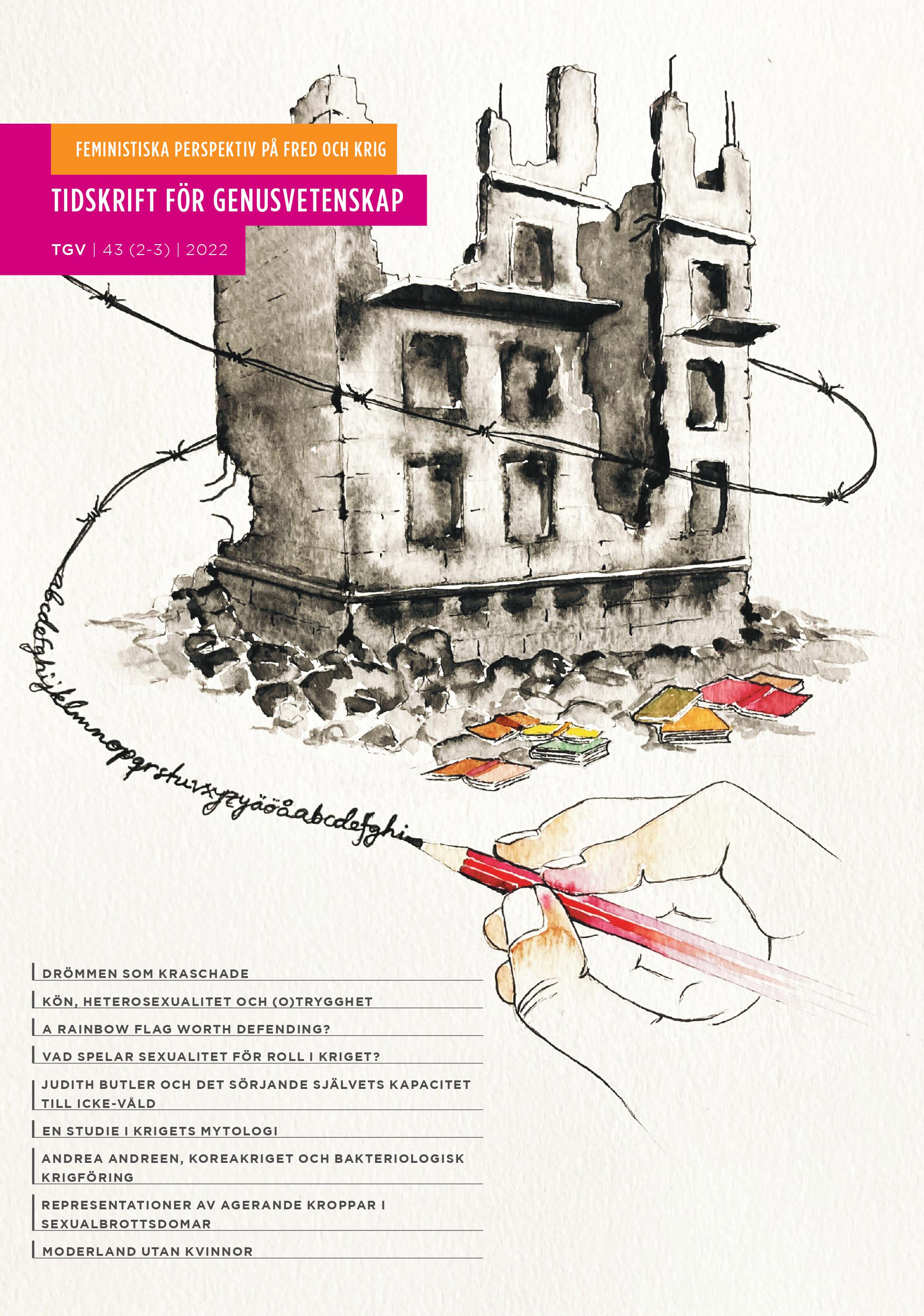Judith Butler och det sörjande självets kapacitet till icke-våld – influenser från Sigmund Freud och Melanie Klein
DOI:
https://doi.org/10.55870/tgv.v43i2-3.8698Nyckelord:
Judith Butler, Sigmund Freud, Melanie Klein, relationen mellan jaget och den andra, beroende, sörjande, icke-våldsetikAbstract
This article discusses how we can understand the self and its capacities for non-violence within the conceptualization of mourning in the work of the feminist philosopher Judith Butler. Though Butler is mainly read as a Foucauldian and a Hegelian, I highlight an often-neglected reading which shows the importance of psychoanalysis for Butler’s thinking. I claim that Sigmund Freud’s and Melanie Klein’s respective understandings of the intersubjective constitution of the self, as structured by mourning, are crucial for Butler’s understanding of the self as relational. Since ambivalence and aggression are important parts of the self’s relational constitution, Butler’s self, inspired by Freud and Klein, is confronted with the ethical task of handling its disposition to destruction with non-violence.
While Butler admits the importance of Freud for their understanding of the self, the role of Klein is more ambivalent in their writing. I show how Klein provides Butler with an understanding of how the self is dependent on its other and at the same time that the self-other relation is the place where ego’s struggle between love and hate is played out. According to my reading, a Kleinian perspective further includes that the self is capable by its structure to handle the hate that dependency on the other awakens. However, I argue that a Kleinian perspective on love is still not yet sufficiently explored in Butler’s ethics. I contend that it is understandable that Butler is wary of Klein’s understanding of the self as intra-psychical and drive-structured, in contrast to their own understanding of the self as ontologically social. But, according to my reading, a Kleinian perspective on how to increase love to diminish hate could be more explored to balance Butler’s emphasis on the self’s aggression and to contribute to a fuller ethics of non-violence.
Nedladdningar
Referenser
Butler, Judith (1990) Gender Trouble: Feminism and the Subversion of Identity. New York: Routledge.
Butler, Judith (2000) Longing for Recognition: Commentary on the Work by Jessica Benjamin. Studies in Gender and Sexuality 1(3): 271–290. doi:10.1080/15240650109349159 DOI: https://doi.org/10.1080/15240650109349159
Butler, Judith (2004) Precarious Life: The Powers of Mourning and Violence. London: Verso.
Butler, Judith (2005) Giving an Account of Oneself. New York: Fordham University Press. DOI: https://doi.org/10.5422/fso/9780823225033.001.0001
Butler, Judith (2009) Frames of War: When is Life Grievable? London: Verso.
Butler, Judith (2014) Notes Towards a Performative Theory of Assembly. Cambridge, Mass.: Harvard University Press.
Butler, Judith (2015) Senses of the Subject. New York: Fordham University Press. DOI: https://doi.org/10.1017/S2753906700001480
Butler, Judith (2020) The Force of Non-Violence: An Ethico-Political Bind. London: Verso.
Butler, Judith, Gambetti, Zeynep och Sabsay, Leticia (2016) Vulnerability in Resistance. Durham: Duke University Press. DOI: https://doi.org/10.1515/9780822373490
Edenheim, Sara (2008) ”The Queer Disappearance of Butler”: När Judith Butler introducerades i svensk feministisk forskning, 1990-2002. Lychnos: årsbok för idé- och lärdomshistoria: 145–173.
Freud, Sigmund (2008) Metapsykologi (2a utgåvan) Stockholm: Natur och Kultur.
Huzar, Timothy J. (2021) Violence, Vulnerability, Ontology: Insurrectionary Humanism. Huzar, Timothy J. och Woodford, Clare (red) Toward a Feminist Ethics of Nonviolence / Adriana Cavarero with Judith Butler, Bonnie Honig, and other voices. New York: Fordham University Press. DOI: https://doi.org/10.5422/fordham/9780823290086.003.0011
Klein, Melanie (1986) A Contribution to the Psychogenesis of Manic-Depressive States. Mitchell, Judith (red) The Selected Melanie Klein. New York: The Free Press.
Klein, Melanie (1988) Kärlek, skuld och gottgörelse, övers. Ingeborg Löfgren, urval och inledning av Ludvig Igra och Lennart Sjögren. Stockholm: Natur och Kultur.
Loizidou, Elena (2007) Ethics, law, politics. New York: Routledge – Cavendish.
McIvor, David W. (2012) Bringing ourselves to Grief: Judith Butler and the Politics of Mourning. Political Theory 40(4): 409–436. DOI: https://doi.org/10.1177/0090591712444841
Sjöholm, Cecilia (2002) Family Values: Butler, Lacan and the rise of Antigone. Radical Philosophy 111: 24–32.
Söderbäck, Fanny (2018) Performative Presence: Judith Butler and the Temporal Regimes of Global Assembly. Diacritics: A Review of Contemporary Criticism 46(2): 32–49. DOI: https://doi.org/10.1353/dia.2018.0008
Publicerad
Referera så här
Nummer
Sektion
Licens
Copyright (c) 2023 Anna Nyström

Detta verk är licensierat under en Creative Commons Erkännande-IckeKommersiell 4.0 Internationell-licens.
Författaren/författarna behåller copyright till verket.





